Swiss assured aid will reach flood victims
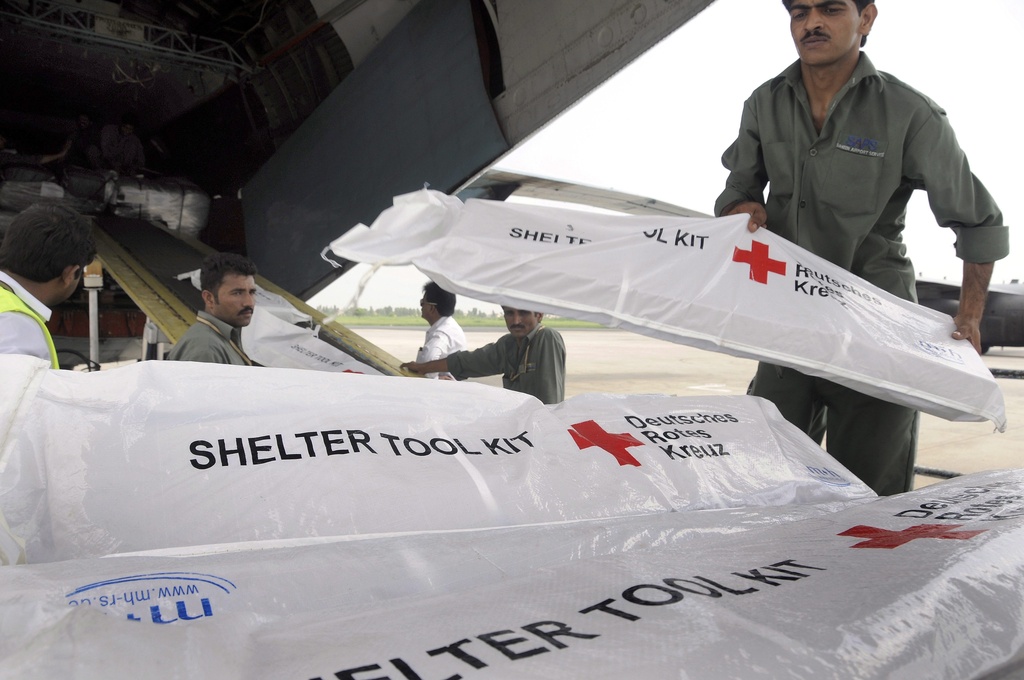
A special fundraising day has been held in Switzerland to raise money for flood victims in Pakistan.
By early Thursday morning, more than SFr13 million ($12.5 million) had been donated or pledged in one day, bringing the total to more than SFr16 million. Several cantonal governments donated lump sums, the largest being SFr500,000 from Zurich authorities.
Swiss Solidarity, the charitable arm of the Swiss Broadcasting Corporation behind the 18-hour-long event, took pains to convince the Swiss public that the money donated would reach those who need it most, and not be diverted by corrupt officials.
The United Nations has requested $460 million (SFr479.4 million) for emergency relief – in other words, money to provide the most basic necessities in the short term like food, temporary shelter, clean water and health care.
The Swiss cabinet decided on Wednesday to send army helicopters to help with relief efforts in Pakistan.
The Swiss government has already earmarked nearly SFr11 million for Pakistan. Combined with the fundraising efforts, the figure is now SFr27 million.
However, it is still a pittance when compared to the SFr65 million raised earlier this year for earthquake victims in Haiti, or the record SFr228 million the Swiss donated for reconstruction efforts in Asia following the 2004 Tsunami.
Part of the reason for the reluctance of people in many countries, including Switzerland, to open their pocketbooks wider has been reports that their money could end up in the hands of corrupt officials, or even terrorists.
Corruption’s appetite
Only last week, Syed Adil Gillani of Transparency International in Pakistan told the BBC that of the money earmarked in the past for Pakistan’s flood commission “more than 50-60 per cent was eaten away because of corruption. [It] is not being spent according to the rules.”
However, the director of Swiss Solidarity, Félix Bollmann, told swissinfo.ch that control mechanisms would ensure that Swiss aid would get to the victims.
“The system we have in place tries to minimise corruption since we only pay for results,” Bollmann said.
“That’s why the money donated today will not be paid out immediately. It will take months and months. We make advance payments so relief agencies can do their work, [but most of the money] is paid only after monitoring the results. This is the best way to minimise corruption.”
Swiss Solidarity does not carry out aid efforts itself but uses 100 per cent of the funds to finance projects of several relief organisations such as the Swiss Red Cross and Caritas Switzerland.
No blank cheque
“We receive requests like ‘we want to distribute this and that to 500 people in a particular village’, and we pay for that,” Bollmann explained.
“But we want to know that the 500 kits or tents were actually delivered, and if something goes wrong, we want a report on why. We don’t just write a cheque and say do your best.”
The Solidarity Chain has learned from past mistakes. After the Tsunami, the agency discovered that it had given money to at least one Swiss NGO working in Sri Lanka that had failed to carry out a proper evaluation of local conditions. The result was a housing project built on land without proper drainage that eventually made the structures uninhabitable.
So that sort of thing does not repeat itself, Swiss Solidarity has, for example, hosted two “coordination meetings” with its partner relief organisations in Haiti to discuss the complex reconstruction work there.
Inflated prices
Bollmann says the threat to efficient Swiss relief efforts in Pakistan, as in other countries hit by natural disasters, is the inflated prices sometimes demanded by local suppliers.
“We have to keep an eye on prices, and compare them, because a lot of the materials are bought locally,” he told swissinfo.ch. “We try to compare prices as soon as possible to see whether items such as construction materials have been paid for according to local market prices.”
Swiss Solidarity’s fundraising appeals successfully reach a large majority of the population since they are broadcast on all public radio and television stations, and published on websites including swissinfo.ch.
This year’s Swiss president, Doris Leuthard, made a radio plea for the Swiss to follow their hearts and show their solidarity with the people of Pakistan.
You can think what you will about the politics in the affected region, Leuthard said, but “it is men, women and children who are suffering”.
Dale Bechtel, swissinfo.ch
In its 2009 survey, Transparency International placed Pakistan 139th out of 180 countries in its Corruption Perceptions Index.
The World Bank says corruption is one of the core reasons hindering the development drive in Pakistan (lack of transparency and corruption, delays in procurement).
A report commissioned by the World Bank found that corruption consumed about 15% of Pakistan’s development budget for the years 2007-2008.
Switzerland’s development cooperation with Pakistan began in 1966 and has focused on alleviating poverty and supporting disadvantaged population groups.
The agency provided extensive humanitarian assistance in the North West Frontier Province after the 2005 earthquake. It also supports measures to improve the living conditions of refugees and internally displaced persons.
In 2008, the government decided to reduce the number of agency priority countries and Pakistan will no longer be categorised as such by the end of 2011.
On August 16, 2010, the foreign ministry said the authorities were “currently analysing the form of future development” for Pakistan in light of the floods.
The total Swiss government bilateral commitment for Pakistan for 2010 originally stood at SFr17.4 million.
(Source: Swiss Agency for Development and Cooperation)

In compliance with the JTI standards
More: SWI swissinfo.ch certified by the Journalism Trust Initiative

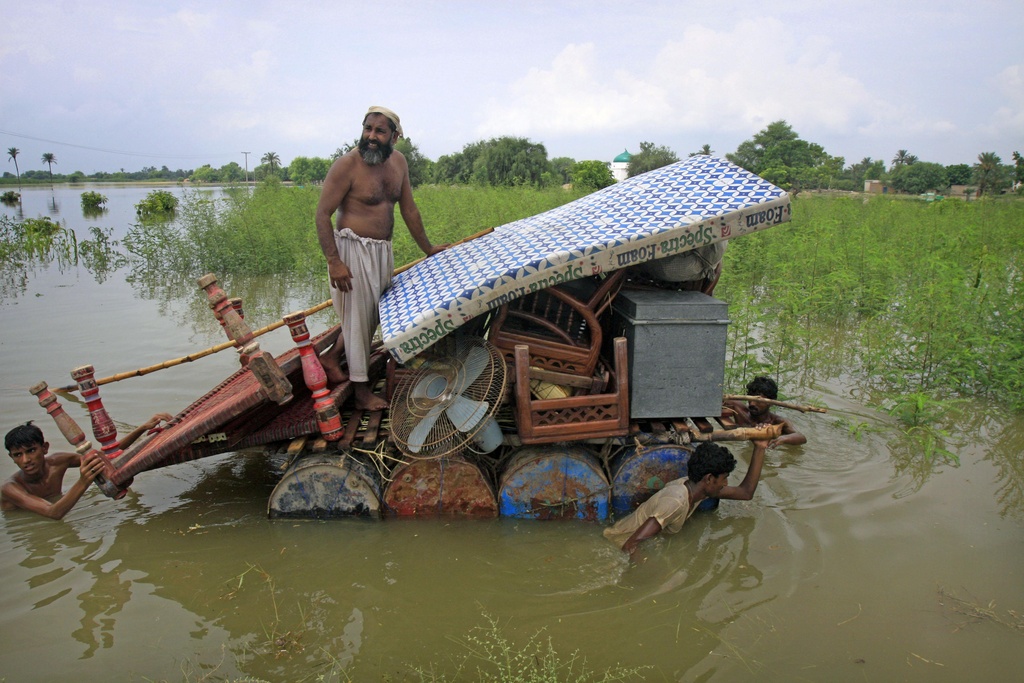
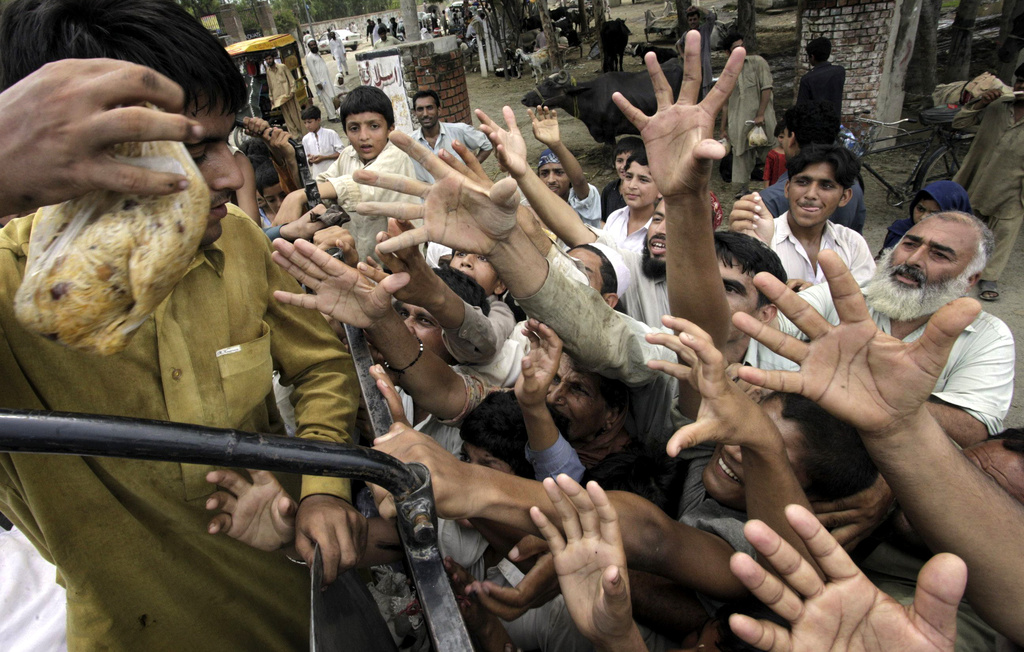
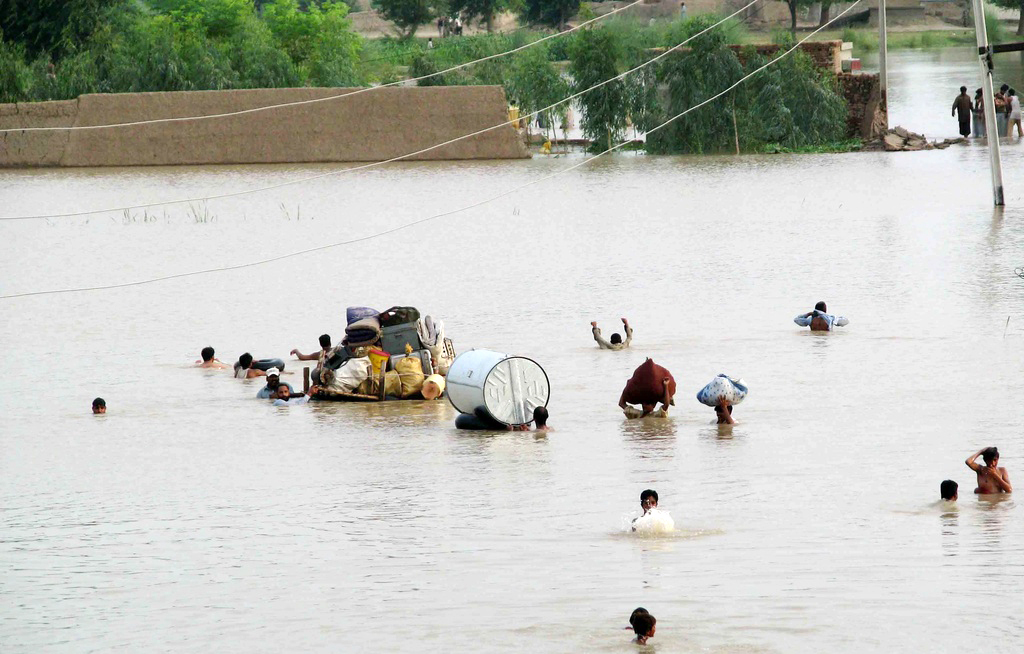
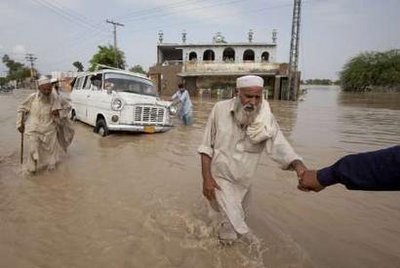
You can find an overview of ongoing debates with our journalists here. Please join us!
If you want to start a conversation about a topic raised in this article or want to report factual errors, email us at english@swissinfo.ch.